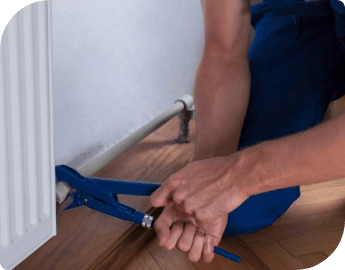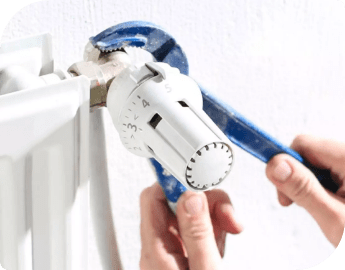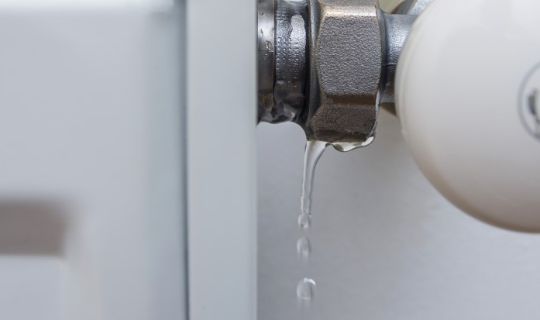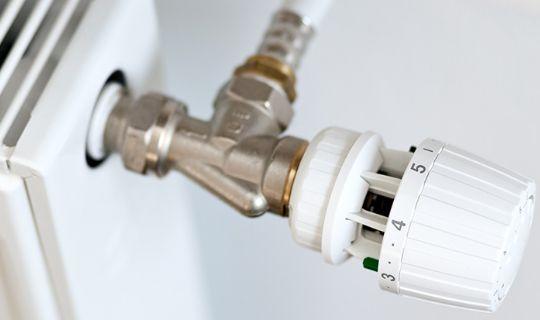How can I reschedule my upcoming appointment?
If you need to reschedule your radiator installation/repair appointment, you can do it anytime for less than a minute! Just navigate to Your Bookings within your Fantastic account. With only a few clicks, you can select the new desired date/time. And you are all set.
Do you offer any special discounts?
Yes! You can enjoy preferential rates and a bunch of exclusive deals when you become a Fantastic Club member. And that’s not all! You can benefit from priority booking options.
What is your area coverage?
Property, business owners, and landlords can book the service in Greater London (the M25 zone).
How many technicians will you send for the radiator replacement?
If the size of your radiator is up to 1m, we will send one expert to your home. We take reasonable care for your and our expert health and safety. That’s why, expect two professionals to visit your home when the radiators are heavy and bigger than 1m.
What is the cost to fit a radiator?
You pay for the labour costs to replace or fit a radiator. The amount of any materials, parts, radiators, and delivery costs comes on top. All-in-all, you pay for the actual job done. In case the heating engineer(s) arrives and can’t carry out the service because of your failure to provide access, you pay a call-out fee of 1 hour.
Do I have to provide any tools or anything else?
From the radiator bleed key and spanner to the pipe cutter, the central heating plumbers bring all the tools and equipment to install or repair your radiators. So, here we’ve got you covered.
What guarantees do you offer?
The Fantastic radiator installation, repair, and replacement service don’t end up when the technician leaves your home. For your peace of mind, you get a 1-year guarantee on workmanship (materials and parts are normally covered by a manufacturer's warranty). So, if by any reason you are unhappy with the work, we’ll make it right and ensure you receive the kind of service you expected.
Where to position radiator units?
You can locate your radiators beneath the window or on an exterior wall. The logic is that you make use of the limited space under the window and reduce drafts. But, with all the advantages of the contemporary radiator models, you now have the freedom to locate your radiator wherever you like. Yet, you shouldn’t let the pipework dictate your radiator location. To get the best out of your radiator, seek the radiator positioning advice right from the professionals.
Where not to put a radiator?
Avoid placing radiators behind large furniture or heavy curtains, as this can obstruct airflow and reduce performance. Areas with poor ventilation or hard-to-access spaces should also be avoided.
Should radiators be on internal walls?
While radiators can be installed on internal walls, exterior walls (especially under windows) are preferred to counter cold drafts and improve heating efficiency.
Why are radiators always in front of windows?
Placing radiators under windows helps combat cold air that enters through the glass, warming the room evenly and preventing drafts.
Do radiators under windows cause condensation?
Properly installed radiators under windows generally help reduce condensation by keeping surfaces warm. However, poor insulation or ventilation issues can still cause dampness.
What height should a radiator be below a window?
Radiators are typically installed a few inches below the window sill, enough space to allow heat to circulate freely and prevent heat loss through the glass.
Does putting a sofa in front of a radiator affect heating?
Yes, placing a sofa or large furniture directly in front of a radiator blocks heat from spreading effectively, which can reduce warmth in your room and increase energy use.
Should you tuck your curtains behind radiators?
Curtains should be kept away from radiators rather than tucked behind them, as blocking the radiator traps heat and reduces circulation, lowering heating efficiency.
Can you put a mirror in front of a radiator?
Mirrors reflect heat and light, but placing one directly in front of a radiator can block some heat flow. It's better to place mirrors nearby but not directly in front.
Is it better to repair or replace a radiator?
If the radiator has minor faults like leaks or valve issues, repair is often the cost-effective choice. However, older radiators with frequent problems, cracks, or corrosion may require replacement for safety and efficiency.
Does radiator repair work?
Yes, many common radiator issues like leaks, air build-up, or valve faults can be repaired quickly to restore proper function without replacing the entire unit.
Is a radiator repair expensive?
Radiator repairs usually cost less than replacement, especially for minor faults. The exact cost depends on the issue and parts needed.
How to tell if a radiator needs to be replaced?
Signs include persistent leaks, corrosion, cracks in the body, frequent breakdowns, or poor heating performance despite repairs.
How often should I replace my radiator?
Radiators can last many years with good maintenance, but if your radiator is older than 15-20 years or shows significant damage, replacement may be needed.
What is the life expectancy of a radiator?
A well-maintained radiator typically lasts 15 to 20 years, though this varies by type, usage, and water quality.
Do radiators deteriorate with age?
Yes, over time radiators can corrode, develop leaks, and become less efficient, especially if not regularly maintained.
How much does it cost to install radiator heating?
Costs vary widely depending on the number of radiators, system complexity, and parts. Contact us for a personalized quote.
How much does it cost to get radiators fitted?
Labour costs for fitting radiators are separate from materials. Get in touch for detailed pricing based on your project.
What makes a radiator more efficient?
Proper sizing, positioning, regular maintenance (like bleeding and power flushing), and installing thermostatic valves increase radiator efficiency.
Are radiators meant to be cooler at the bottom?
Radiators can feel cooler at the bottom due to natural heat circulation. However, uneven heating or cold spots may indicate trapped air or sludge needing servicing.
Do I need new radiators if I replace my boiler?
When you
install a new boiler, it makes sense to replace your radiators if the latter cannot handle the pressure output. It’s especially valid when you opt for a larger or combi boiler. To ensure you have the correct radiator type and size, consult with your heating engineer so you can choose what’s best for your property.
Help! My radiator is leaking! What can I do?
Well, it depends on the source of the leak. Usually,
radiator leaks come from the radiator fabric, the valve, spindle, pipework, etc. If corrosion made a hole into the radiator body, whatever temporary measures you take, you would need to replace it. But if the issue comes from the valve, it can probably be fixed. So, whenever you notice a warning sign, we recommend calling an accredited technician to identify the cause and deal with the leak quickly.







